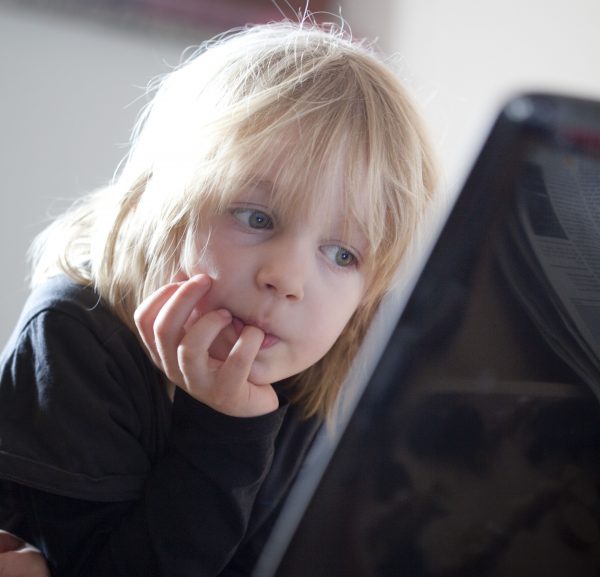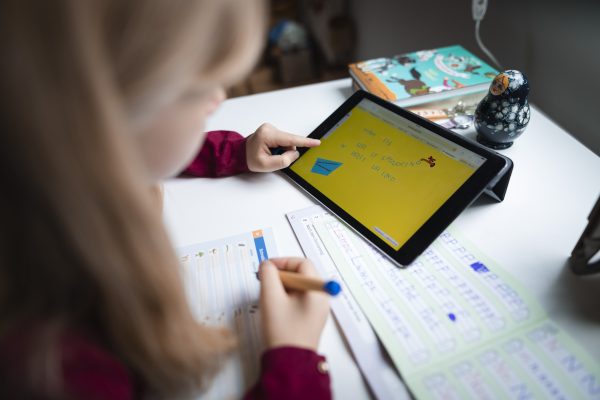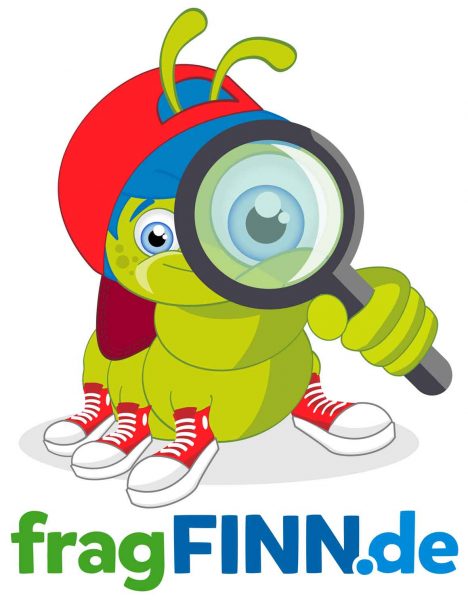In the toddler age clearly better symbolic understanding is shown. Toddlers act out their own stories – alone or with peers. Typical of this is the “father-mother-child” game. Such games are important for children’s development: it increases social skills and strengthens, for example, attention, speech, imagination, and later also writing and reading skills. Many child-oriented films and television content take advantage of this: they show fictional worlds that children often act out themselves afterwards.

© photothek.net
Media competence also benefits children later, at school age! If children understand media symbols well, they can also learn language and mathematical content more easily in preschool and make better use of learning media.
The Internet, i.e. websites, do not yet play such a large role for preschool children compared to other media activities. The children use media for information about the living environment and for orientation for their own position in friendships and family. Educationally valuable media programs can provide assistance. You should make sure that the programs children use are also age-appropriate and do not teach behaviors that are harmful.
If you want to support your child in using media so that he or she can acquire digital media in a meaningful way, you should consider when this makes sense and what the support might look like. Moving beyond the daily read-aloud book to cinematic sequences or picture stories can be a start.

Copyright: photothek.net
Your child is not only looking for entertainment on the web, tablet and laptop are not just for passing time. Children and young people also use media specifically for learning and information – whether on behalf of the school or out of their own interest. If your child feels you don’t believe him when he learns with the tablet, it will lead to frustration. The fact that digital media are so fascinating opens up the opportunity to combine learning and fun. You should support this!
Especially in secondary school, it is becoming natural for children and young people to use digital media for school: They do research for lectures or create a presentation on a laptop. Your child may also be using an online tutoring service.
Your child learns that digital media are not just for entertainment and communication, and acquires important skills that he or she will probably need later in his or her career.
Children are fascinated by the Internet and the infinite information. No matter what you’re looking for, there’s a page for it. However, adult search engines are often used. Not least due to still insufficient research skills, however, children are confronted there with a confusing abundance of results that they can filter only with difficulty. They may also encounter results that are sometimes unrelated or inappropriate to their search.
 To protect children, there are search engines designed specifically for them that allow them to take their first research trips unaccompanied by adults. Search engines for children, such as www.fragfinn.de or www.blinde-kuh.de, differ in essential characteristics from the usual search engines. This is especially true for the design, preparation and handling of problems. Texts, images and videos are pre-screened against specific criteria and then approved. Thus, they are safe and interesting for children at the same time.
To protect children, there are search engines designed specifically for them that allow them to take their first research trips unaccompanied by adults. Search engines for children, such as www.fragfinn.de or www.blinde-kuh.de, differ in essential characteristics from the usual search engines. This is especially true for the design, preparation and handling of problems. Texts, images and videos are pre-screened against specific criteria and then approved. Thus, they are safe and interesting for children at the same time.
These offers are aimed at children from about 6 to 12 years. Starting around fifth grade, children should be gradually introduced to adult search engines.
Especially at the beginning of the primary school years, our children are exposed to new challenges everywhere: learning to read, write and do arithmetic brings them closer to the world of the grown-ups. At no other stage of life are they more motivated to learn new things. The most important task for you as parents is to support them by motivating them to learn and acquire knowledge on their own.

© photothek.net
Your child is not just looking for entertainment on the web, and the tablet is not just a way for him to pass the time. Children also use media specifically for learning and information – whether on behalf of the school or out of their own interest. If your child feels you don’t believe him when he learns with the tablet, it will lead to frustration. The fact that digital media are so fascinating opens up the opportunity to combine learning and fun.
More and more schools are also taking advantage of children’s thirst for discovery combined with their fascination for media to shape their lessons.